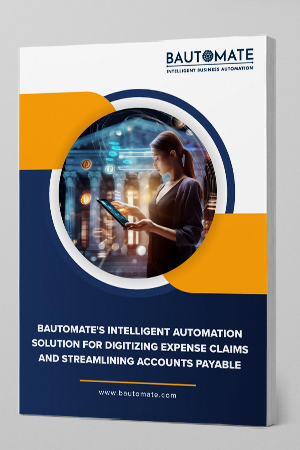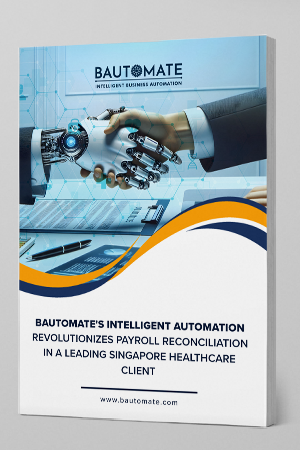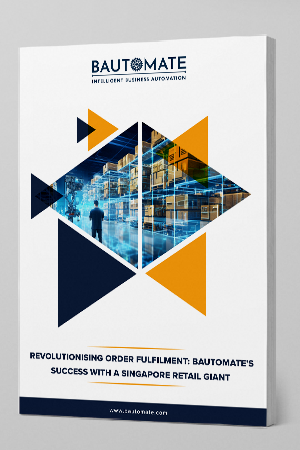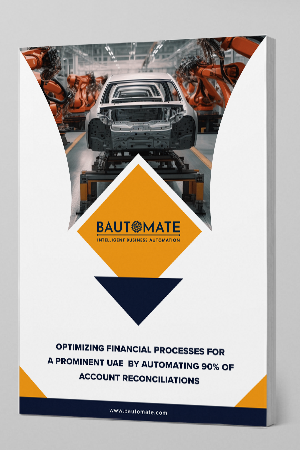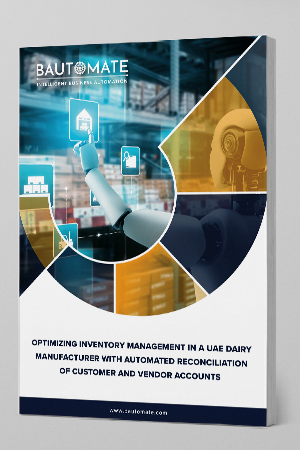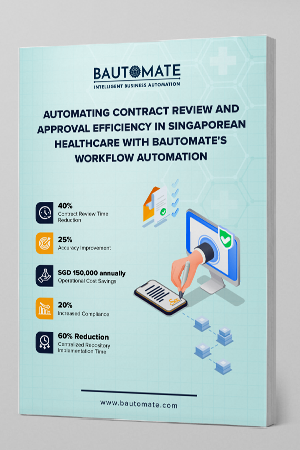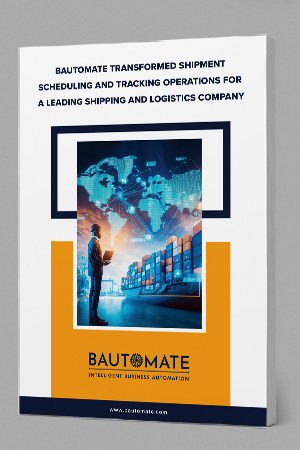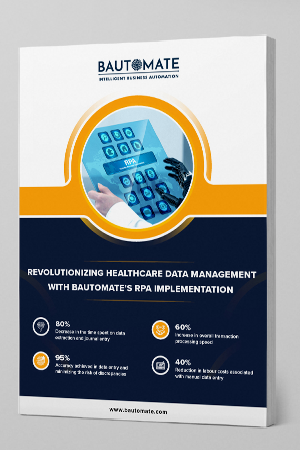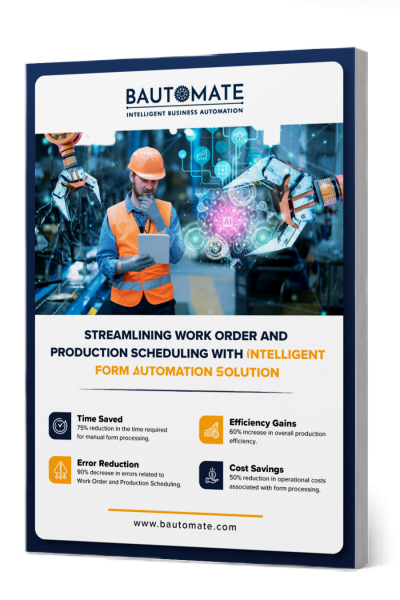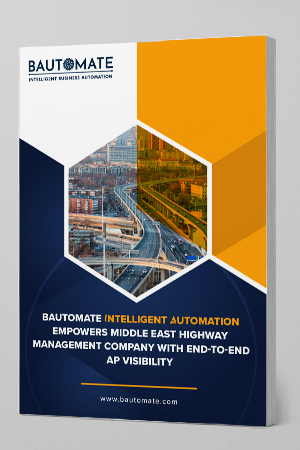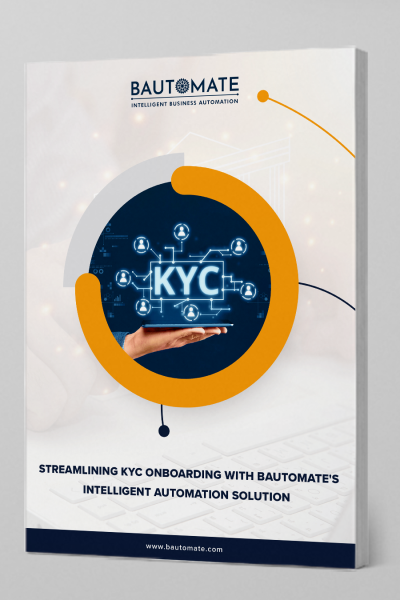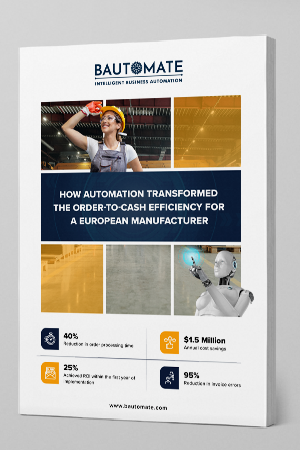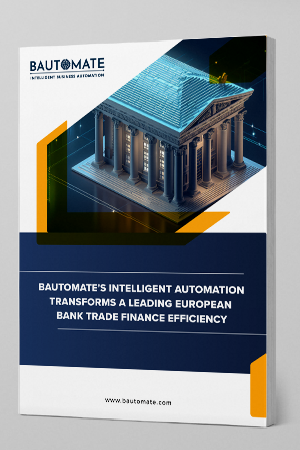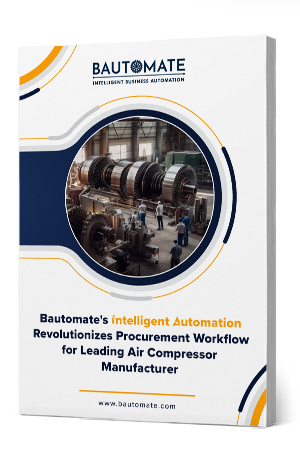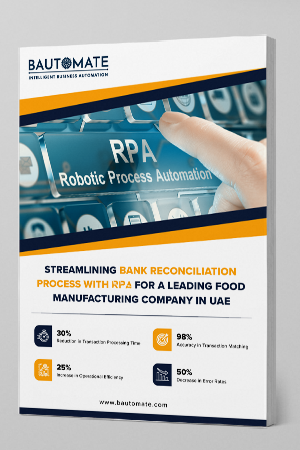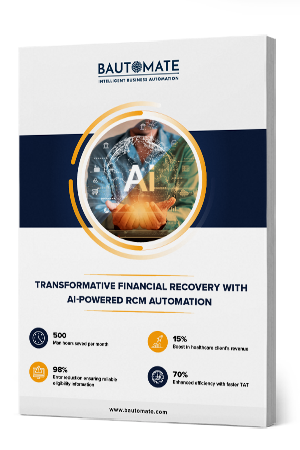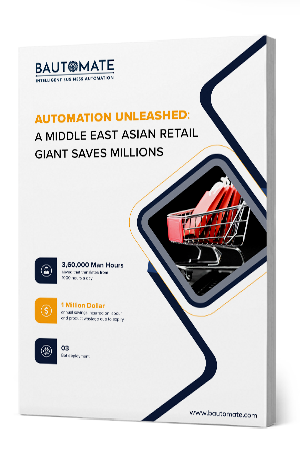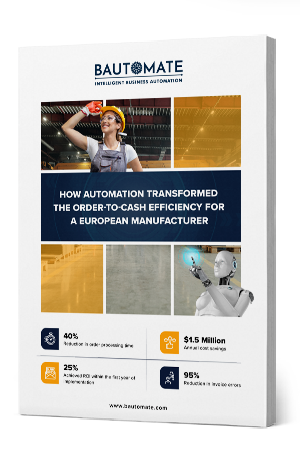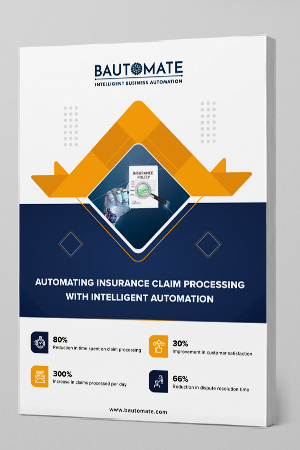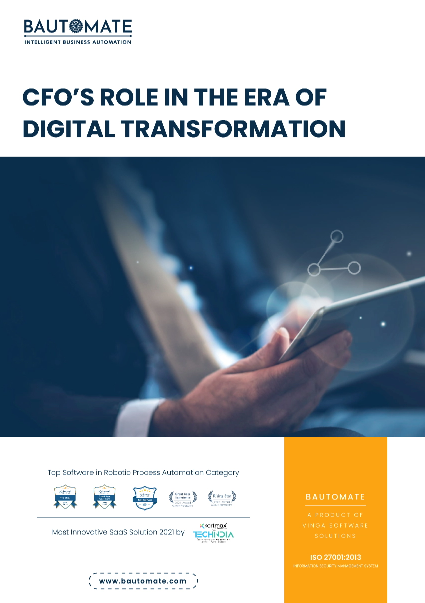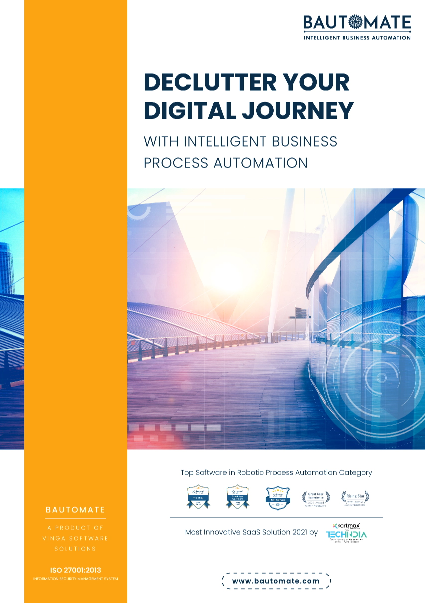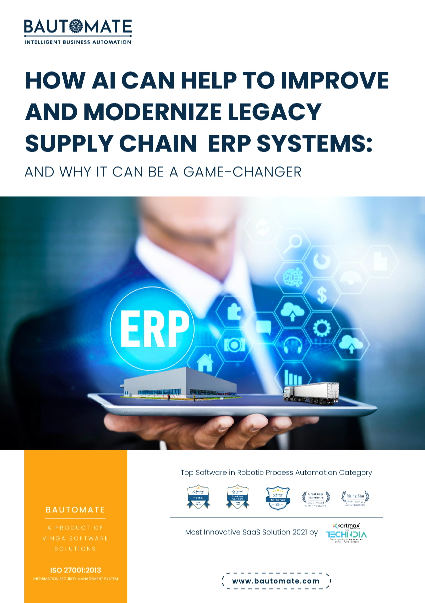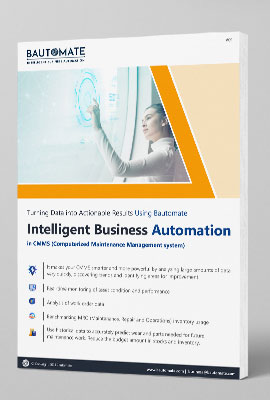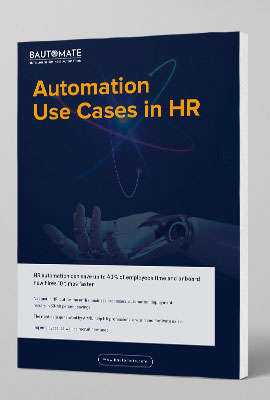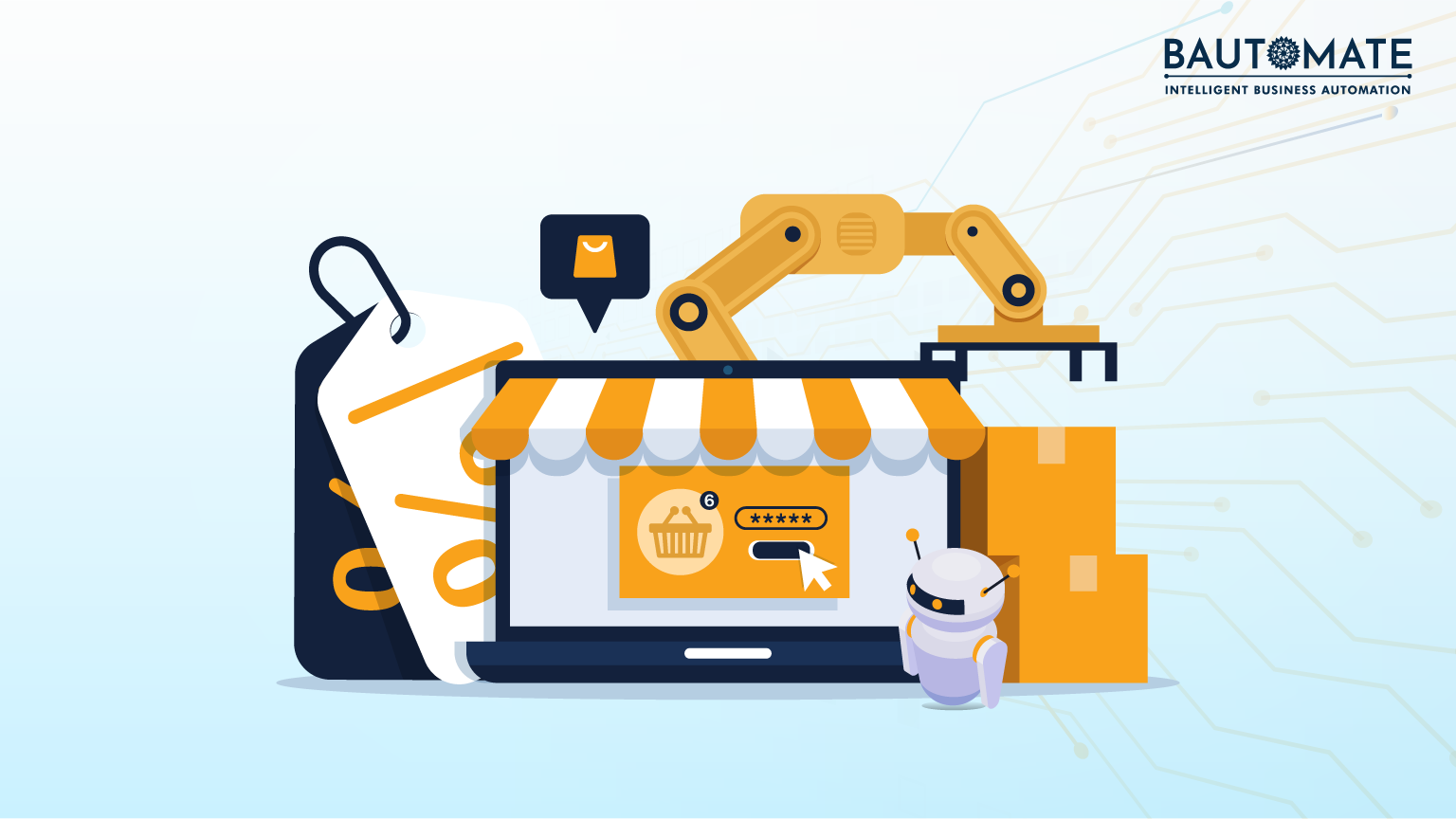
The retail industry has undergone significant changes in recent years, with the adoption of automation technologies playing a key role in this transformation. According to a report by Grand View Research, the global retail automation market size was valued at $9.5 billion in 2020 and is expected to grow at a compound annual growth rate (CAGR) of 9.9% from 2021 to 2028. This growth is being driven by the benefits that automation can provide to retailers, including improved operational efficiency, enhanced customer experiences, reduced costs, and increased revenue.

Automation technologies have been evolving in the retail industry over the years, with online retail store to multichannel to omnichannel operation, barcode scanning and point-of-sale systems being the earliest examples.
Today, retailers are leveraging advanced automation technologies such as AI , ML , robotic process automation, and Intelligent OCR to automate tediouse time consuming back office tasks across various areas of their business, including Account Payable & Receivable, Supply Chain Management, Warehouse Management, Inventory Management, Order Processing and Delivery Scheduling .
A study by McKinsey found that using predictive analytics for inventory management can reduce inventory holding costs by up to 50%.
PayStream has found that 90% of CFOs that implemented AP automation standardised purchasing processes and achieved savings of 80% in invoice processing costs.
A study by Forrester Found that business process automation can lead to a 20 % reduction in labour cost and a 10 % Increase in revenue.
Additionally, chatbots can help retailers automate customer service inquiries and provide 24/7 support, leading to increased customer satisfaction.
Intelligent Automation in Retail Businesses

Intelligent Automation can help tackle back-end difficulties in the retail and e-commerce industries. Tedious back office procedures like billing, inventory management, procurement, and shipping, order processing, finance can be automated using techniques like AI & ML, RPA. At the same time, AI components, on the other hand, can produce accurate marketing campaigns for front-end operations, such as targeted emails, social media advertisements, and loyalty programs. AI can also assist in analyzing client data, customer feedback, and competitive pricing to boost the organization’s sales and profitability.
Benefits of Intelligent Automation in Retail Businesses

Intelligent automation is providing significant benefits to the retail industry, from reducing costs and improving efficiency to enhancing the customer experience. Here are some stats to illustrate the impact of intelligent automation on various areas of the retail industry:
Cost Reduction: A study by PwC found that implementing intelligent automation can result in cost savings of up to 40% for retailers.
Improved Efficiency: According to a report by McKinsey, back-office automation can increase efficiency by up to 40%, while warehouse automation can reduce processing times by up to 60%.
Enhanced Customer Experience: A report by Capgemini found that implementing intelligent automation can lead to a 10-15% increase in customer satisfaction ratings.
Increased Sales: A survey by Forrester found that retailers who implement intelligent automation can increase their sales by up to 7%.
Improved Accuracy: A study by Ardent Partners found that invoice automation can reduce invoice processing errors by up to 50%.
Cost Savings: According to a report by Accenture, intelligent automation can help retailers achieve cost savings of up to 30% in procurement, finance, and accounting.
Areas where automation promises the biggest ROI in Retail Industry

Accounts Payable:
Retailers can automate their accounts payable & Receivable process using intelligent automation. Automated OCR can scan invoices, extract data, and then enter it into the system, eliminating the need for manual data entry. RPA can automate invoice processing, duplicate checking, payment approvals, and other routine tasks, while AI & ML can analyse payment data to identify payment trends and reduce payment processing times.

Inventory Management:
Retail companies can use AI and machine learning to optimize inventory levels, reduce waste, and improve profitability. By analyzing historical sales data and current demand patterns, AI can predict future demand, allowing retailers to order the right amount of inventory and prevent stockouts.
According to a study by McKinsey, using automation in inventory management can reduce inventory levels by up to 30%, resulting in cost savings and improved efficiency.
Warehouse Management:
Intelligent automation can automate warehouse management tasks such as inventory tracking, order fulfillment, and asset management. According to a study by Zebra Technologies, using automation in warehouse management can increase productivity by up to 30%.
Demand Forecasting:
Intelligent automation can help retailers predict demand for products more accurately, enabling them to optimize inventory levels and reduce stockouts. According to a study by Capgemini, using automation in demand forecasting can increase forecast accuracy by up to 30%.
Payroll Processing:
Retailers can also automate their payroll processing using intelligent automation. RPA bots can handle tasks such as employee data entry, timesheet management, and payroll calculations, ensuring accurate and timely payment to employees.
Customer Service:
Intelligent automation can help retailers provide better customer service by automating customer service processes such as chatbots, automated email responses, and IVR Interactive Voice Response.
Order Processing & Pick and Pack:
Intelligent automation can automate the pick and pack process, which involves selecting products from inventory and preparing them for shipment. According to a study by DHL, using automation in the pick and pack process can reduce the time it takes to process an order by up to 50%.
Transportation Management:
Intelligent automation can automate transportation management tasks such as routing, scheduling, and carrier selection. According to a study by the Boston Consulting Group, using automation in transportation management can reduce logistics costs by up to 20%.
Conclusions:
Retail will increasingly rely on automation in the future Bautomate a Low Code AI & ML Powered Intelligent Automation platform transforming the retail and ecommerce industry by helping businesses to improve operational efficiency, enhance customer experience, increase efficiencies across the retail lifecycle and drive revenue growth. Schedule a Demo for Free Retail Automation Consultations.




